Addition skills Word Problems Worksheets for Ages 3-8
11 filtered results
-
From - To
Unlock your child's mathematical potential with our "Addition Skills Word Problems Worksheets for Ages 3-8"! Designed by experts, these engaging worksheets combine fun stories and practical addition problems to enhance your child’s problem-solving abilities. Perfect for preschoolers to early elementary students, each sheet encourages critical thinking and builds a strong foundation in addition. With colorful illustrations and relatable scenarios, learning math becomes an exciting adventure. Boost your child’s confidence and mathematical skills. Visit our webpage now to explore our curated collection and watch your little one thrive in the world of numbers!
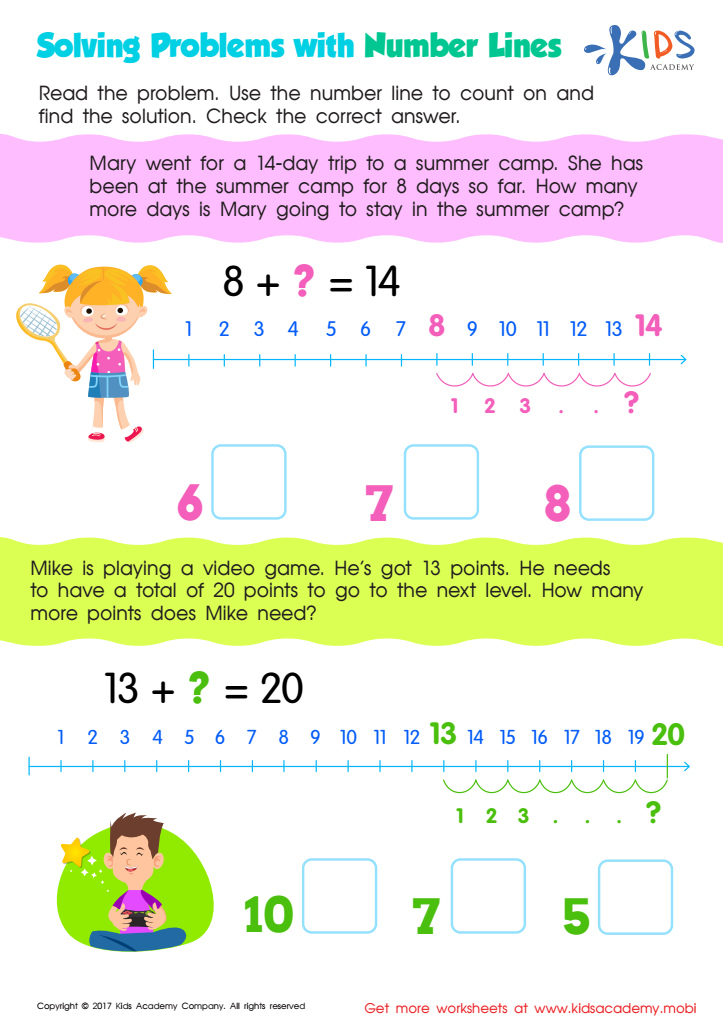

Solving Problems: Number Lines Worksheet
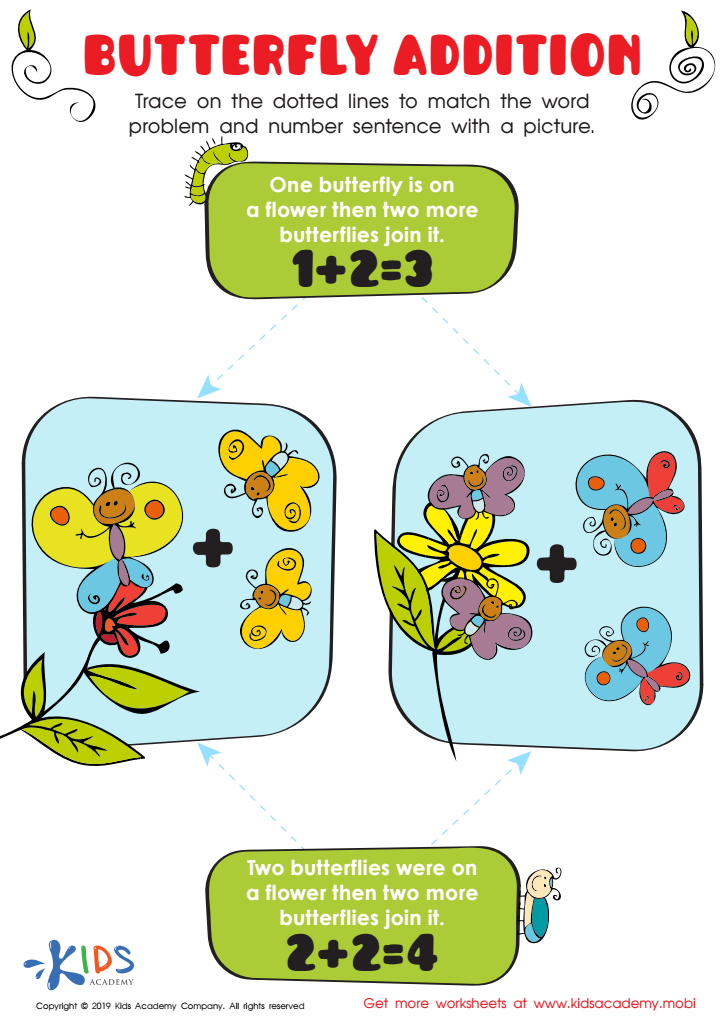

Butterfly Addition Worksheet
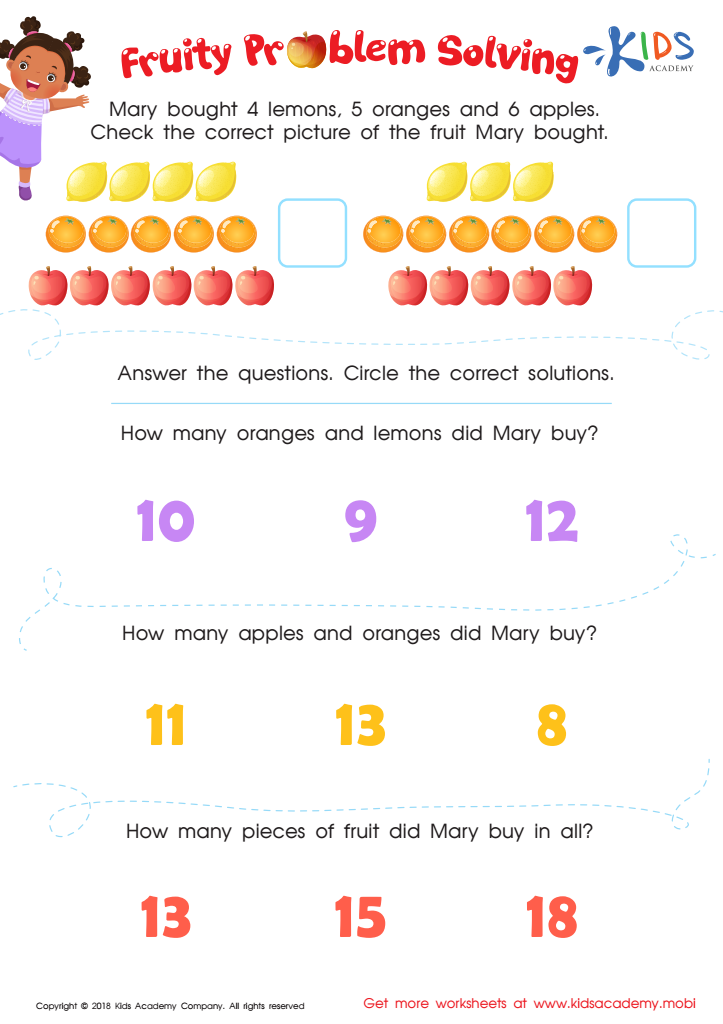

Fruity Problem Solving Worksheet


Adding Flower Petals Worksheet
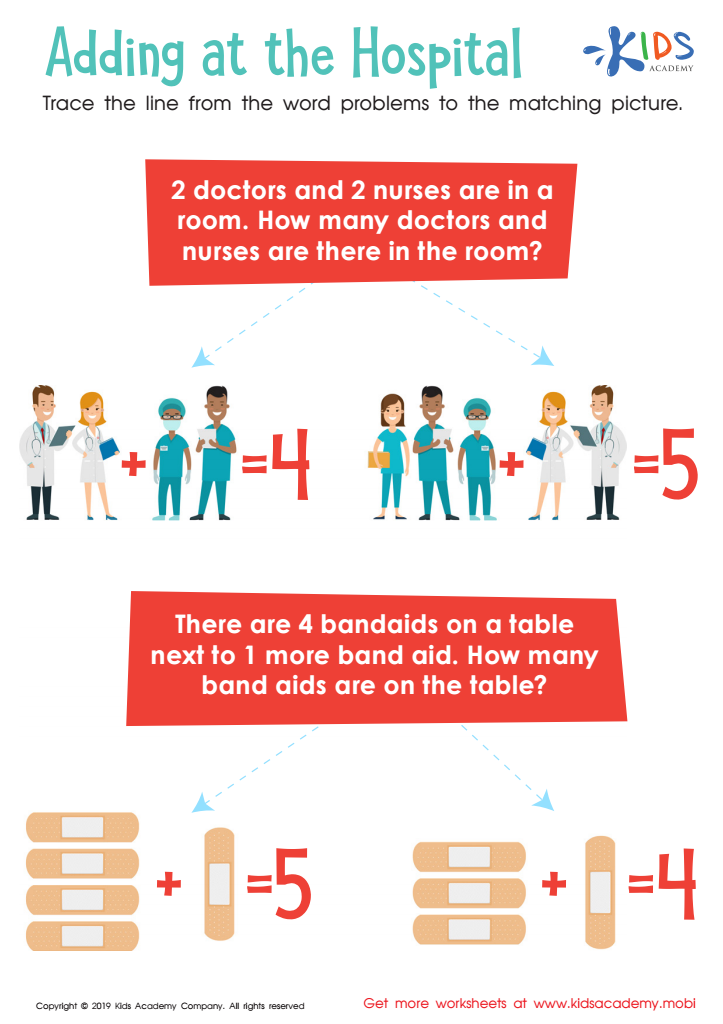

Adding at the Hospital Worksheet
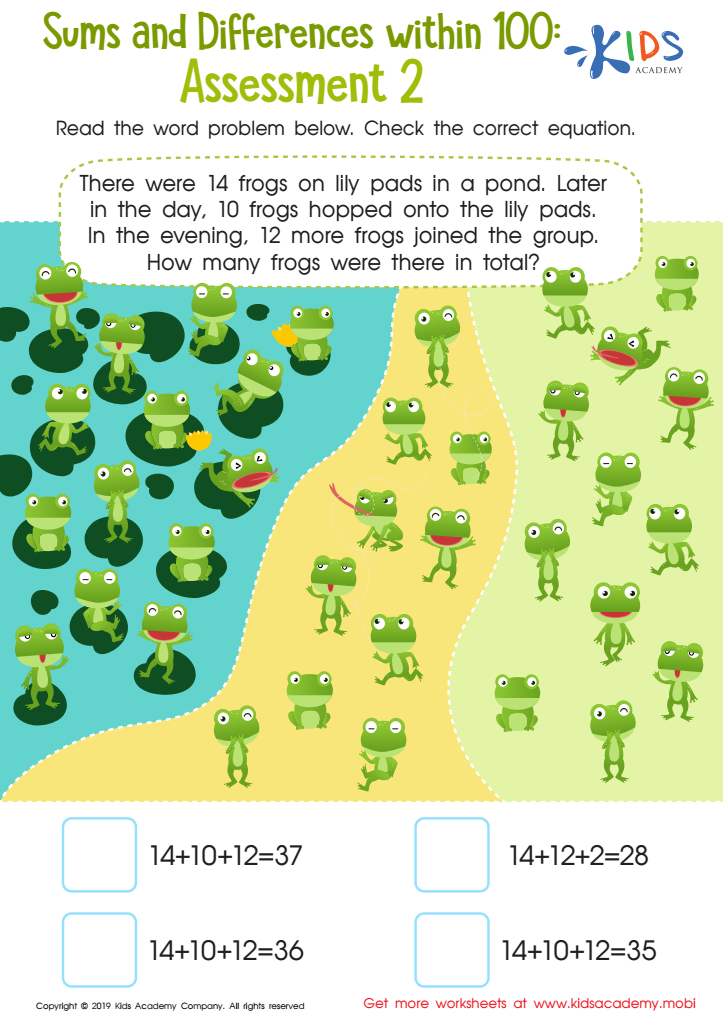

Sums and Differences Within 1 - Assessment 2 Worksheet
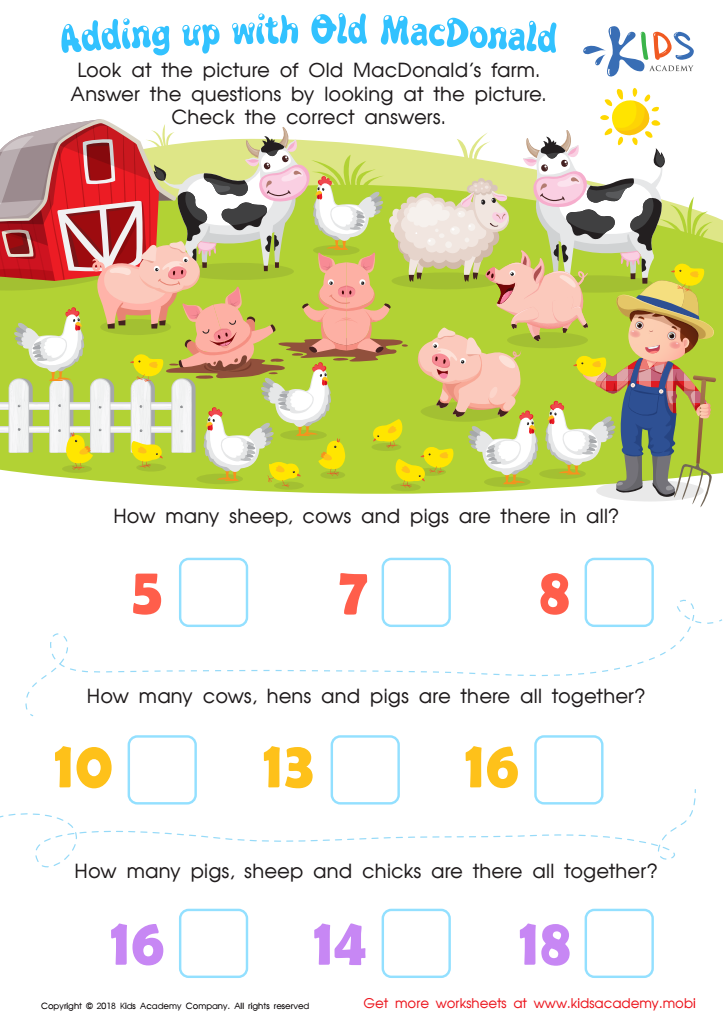

Adding Up with Old MacDonald Worksheet
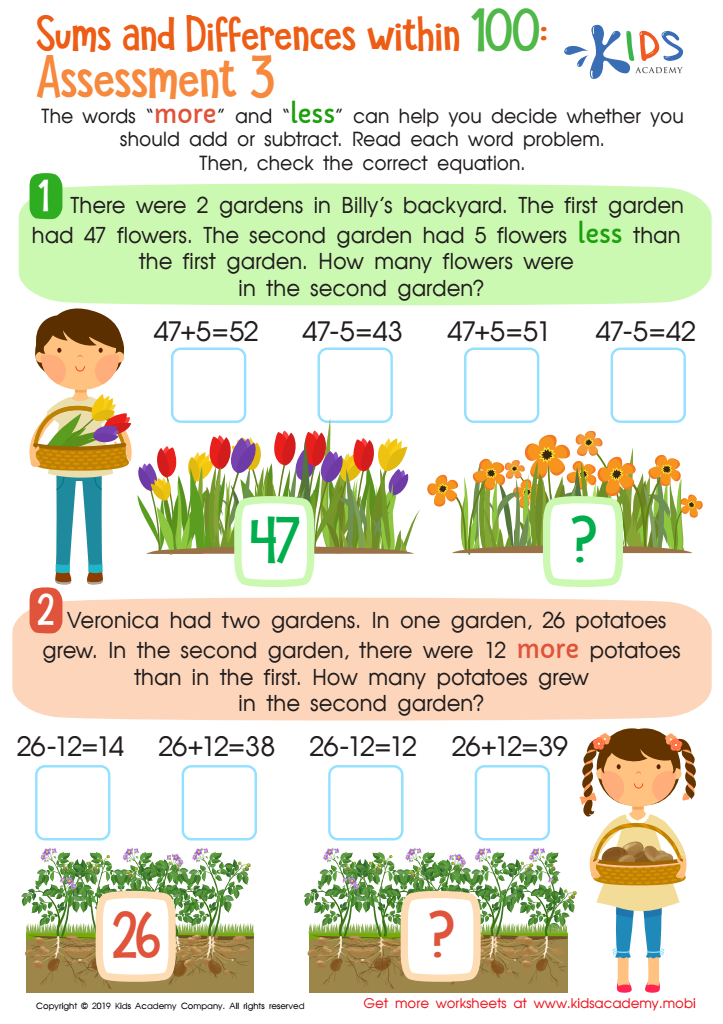

Sums and Differences Within 1 - Assessment 3 Worksheet
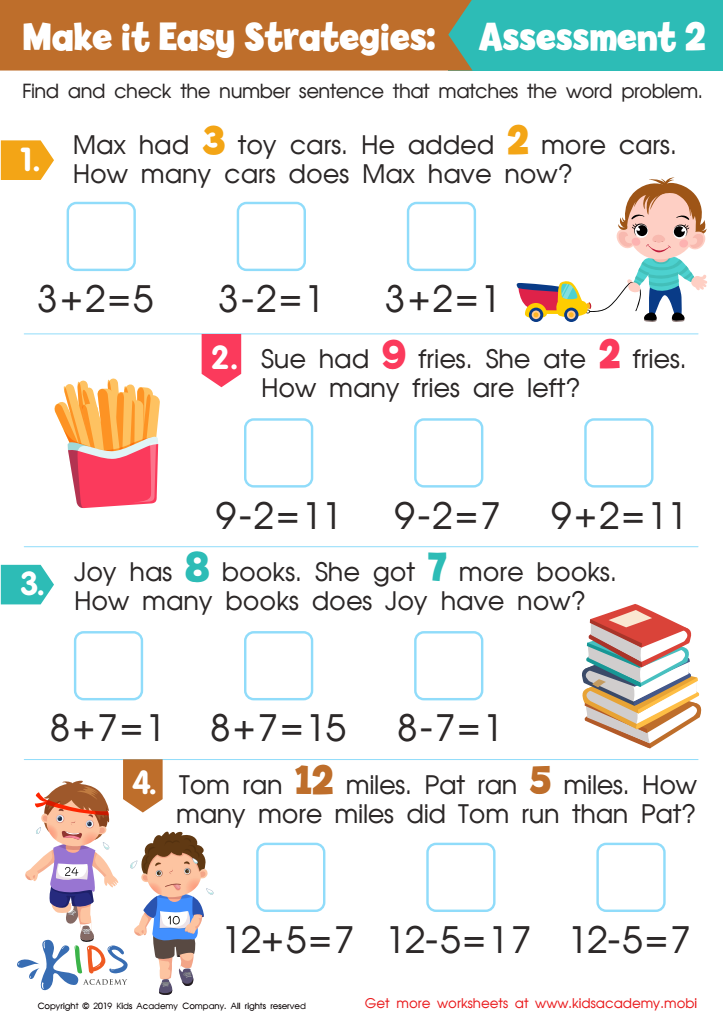

Make it Easy Strategies: Assessment 2 Worksheet
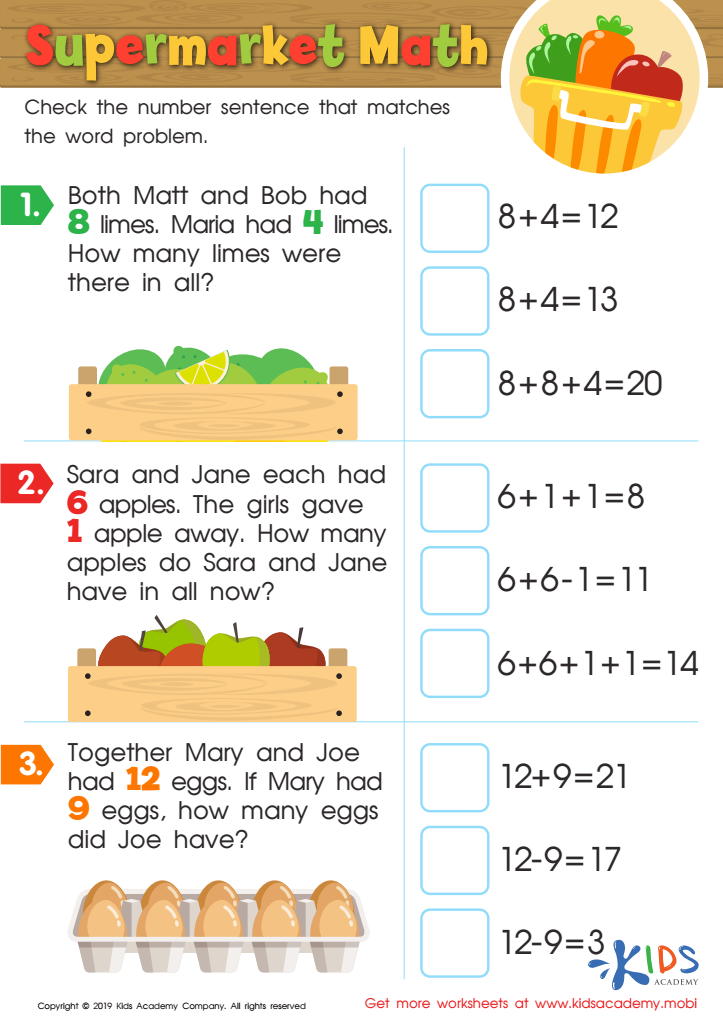

Supermarket Math Worksheet
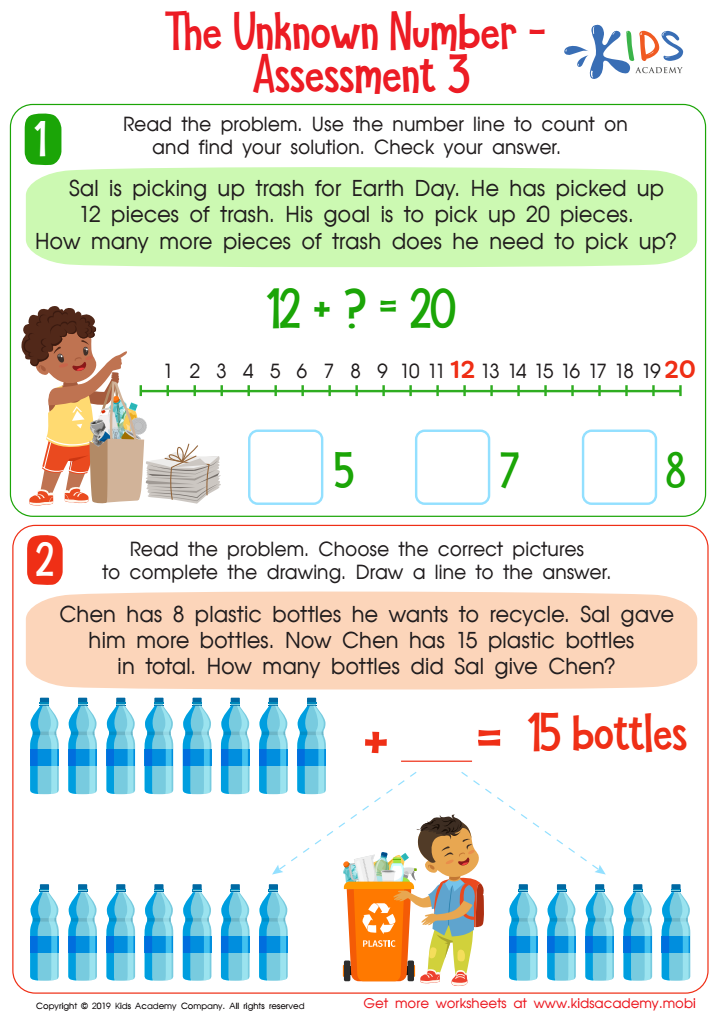

The Unknown Number - Assessment 3 Worksheet
Addition skills are fundamental building blocks for children's mathematical understanding, and word problems play a crucial role in developing these skills, especially for ages 3-8. When young children engage with addition word problems, they are given the opportunity to apply math in real-world scenarios, which enhances their comprehension and makes learning more relatable and interesting.
First, mastering addition through word problems aids in developing critical thinking and problem-solving abilities. Children learn to extract relevant information, understand a situation, and determine the mathematical operation needed to find a solution. These are vital skills not just in math, but in everyday decision-making and logical processes.
Second, addition word problems strengthen language skills and vocabulary. As children read and interpret the problems, they practice literacy by understanding new terms and constructing meaning from context, which bolsters both their reading and math abilities simultaneously.
Third, solving word problems helps in improving attention to detail and accuracy. Kids learn to focus, follow steps methodically, and ensure their answers make sense, fostering precision and care in their work.
Lastly, these skills lay the groundwork for more complex mathematical concepts. Addition is foundational to all other arithmetic operations and early competence encourages confidence and a positive attitude towards math as children progress through school.
Therefore, both parents and teachers should prioritize addition word problems to nurture well-rounded, competent learners who are prepared for future academic challenges.
 Assign to My Students
Assign to My Students
















